Oslo (Norway)
Cruise Port schedule, live map, terminals, news
Region
Baltic - Norwegian Fjords - Russia
Local Time
2025-04-13 10:54
 52°F
52°F 11.2°C

 Gentle breeze
Gentle breeze3.6 m/s
 57 °F / 14 °C
57 °F / 14 °C 40 °F / 5 °C
Port Oslo cruise ship schedule shows timetable calendars of all arrival and departure dates by month. The port's schedule lists all ships (in links) with cruises going to or leaving from Oslo, Norway. To see the full itineraries (ports of call dates and arrival / departure times) and their lowest rates – just follow the corresponding ship-link.
| Day | Ship | Arrival | Departure |
|---|---|---|---|
| 5 April, 2025 Saturday | 09:00 | 06 Apr, 17:00 | |
| 7 April, 2025 Monday | 08:00 | 18:00 | |
| 8 April, 2025 Tuesday | 08:00 | 18:00 | |
| 9 April, 2025 Wednesday | |||
| 15 April, 2025 Tuesday | 07:00 | 16:00 | |
| 24 April, 2025 Thursday | 08:00 | 18:00 | |
| 25 April, 2025 Friday | 09:00 | 26 Apr, 17:00 | |
| 27 April, 2025 Sunday | 08:00 | 18:00 | |
| 30 April, 2025 Wednesday |
Oslo is Norway's largest seaport (located on Aker River / at Oslofjord ’s entrance) and also the country's capital and largest city with population around 670,000 (metro around 1,59 million).
The city is Norway's governmental and economic center, and also serves as country's main hub of commerce, banking, shipping trade, maritime industries. Here are headquartered nearly 2000 large companies within the maritime sector. Some of these are the world's largest shipbrokers, insurance brokers, passenger and cargo shipping companies. The city also houses numerous cultural facilities, historical buildings, museums, art galleries, recreational parks (Frogner, Bygdoy, Ekebergparken, St Hanshaugen, Toyen), annual festivals.
The metro area contributes around 1/4 of Norway's GDP and generates over 1/4 of country's tax revenues. In 2018, Oslo City was ranked 5th in the list of world's top 10 most expensive cities - following Singapore, Paris, Zurich, Hong Kong, and followed by Geneva, Seoul (Port Incheon), Copenhagen, Tel Aviv (Port Haifa) and Sydney NSW.
Oslo Airport is an international airport connecting the city to 26 domestic and 151 international airports. In 2017, the airport served over 27 million passengers, ranking it Scandinavia's 2nd-busiest (after Copenhagen) and Europe's 19th-busiest. The airport is located in Gardermoen - approx 35 km (22 mi) northeast from downtown. It is connected to downtown via Gardermoen Line (high-speed trains). The city is also served by Torp Airport (Sandefjord), located approx 119 km (74 mi) to the south of downtown.
Port Oslo
The seaport is Norway's principal (and largest) cargo and ferry port, handling weekly between 50-70 ship calls. Around 1/2 of country's population lives less than 3-hour drive from the seaport, which is located at short distance to city's main railway and road connections.
Port Oslo (locode NOOSL) is the main contributor to the city's economy, being ranked as Norway's largest general cargo and containership port, as well as the country's main passenger shipping (ferry) gateway. The seaport handles annually around 6000 vessels, with total cargo volume around 6 million tons and passenger shipping volume nearly 7 million. The port authority company is "Port of Oslo KF".
At its modern terminals, the port can handle all types of cargo ships with draft up to 11 m (36 ft) as max quay water depth. The seaport has total land area 1,26 km2 (0,5 mi2) and total quay length 9922 m (32550 ft). Pilotage (pilot assistance) is mandatory for all vessels.
Currently, the Port handles 3 daily ferry arrivals with all 21 weekly crossings between Norway and Denmark (Copenhagen, Frederikshavn) and Germany (Kiel). Regularly scheduled cruiseferries connect Oslo with Kiel (Color Line, 7 weekly crossings, travel time 20 hours), with Copenhagen (DFDS Seaways, 7 weekly crossings, time 17 hours) and with Frederikshavn (Stena Line, 7 weekly crossings, time 9 hours).
For FY2018 (fiscal year), Port Oslo reported a record volume of TEU-containers (238,000, or 14% increase over 2017) handled at YILPort Oslo terminal - Norway's newest and most modern. Half of the country's population lives within a 3-hours drive from the seaport, and ~80% of all containerized goods enter Norway through Oslo.
Officially inaugurated on January 8, 2019, Port Oslo now offers shoreside power supply to berthed vessels. The first ship that received shore-to-ship power was Stena Saga. The technology allows docked vessels to shut down their diesel engines and plug into city's electricity grid (via pierside electrical hookups), thus reducing bad emissions by up to 95%. The expected annual diesel fuel savings are 1400+ tons - the annual CO2 emissions equivalent of 1300 cars.
In May 2023, Zinus Power (supplier of shore power products and solutions) won a contract with powerCON (Neutrik-owned electrical connector) to supply Port Oslo's CRU500 (portable cable management system). Since the project was completed (September 2024), the Port has the capacity to supply electricity to all berthed vessels.
Oslo cruise port
Oslo is one of the Hurtigruten ports along the "Express Route" (Norwegian Coastal Express). This is a regularly scheduled ferry and cruise itinerary in Norway, between the turnaround ports Bergen (southmost) and Kirkenes (northmost).
In 2011 (the Port's record year) were handled 170 ship calls and 312,000 passengers. In 2013, the cruise port handled over 300,000 passengers from 146 different nations. Cruises to Oslo are divided in two main types of itineraries - Baltic Sea and Norwegian Fjords.
In 2017, the port had scheduled a total of 102 ship calls (compared to 81 calls in 2016) and handled around 155,000 passengers. In 2017, most berth bookings were made by AIDA Cruises (22 calls) and TUI Cruises (8 calls).
Oslo cruise terminal
In Port Oslo cruise ships dock on Akershus Fortress sides. There are 4 piers – Sondre Akershus (length 235 m), Vippetangen (230 m), Revierkaia (300 m) and Filipstad (350 m). In the cruise terminal area passenger amenities include coffee shop, tourist info office (city tours, free maps), souvenir shops, currency exchange, free Wi-Fi, Internet, taxi ranks.
Downtown is within easy walking distance. The airport is 50 km (30 mi) from the terminal. Most tourist attractions are close to the terminal. Public transportation system offers bus service. Buses depart from the terminal every 30 min.
To reach Bygdoy peninsula (home to Kon-Tiki, Fram museums and Viking Ships) take the ferry (at Pier 3) - travel time is 10-15 min.
Oslo tours, shore excursions, hotels
City Tours and Shore Excursions
- Opera House: it was inaugurated in 2008. it is an architectural masterpiece. It is made of white marble and looks like a massive ice sheet. It has angular slabs resembling giant ski slopes. The construction cost was $700 millions. It is the home of the Norwegian Ballet and Norwegian National Opera.
- Holmenkollen: famous ski jump area. It dates from the end of 19 century. The area was renovated for the Winter Olympic Games in 1952. It is 357 meter above sea level. The ski jump tower is 60 meter higher. Also you can visit the ski museum, which is the world’s oldest. Holmokollen is located in the Marka region. It is open for visitors through all the year.
- Vigeland Sculpture Park: it is in the western part of Oslo, in the Fronger Park. Discover over 200 sculptures by Gustav Vigeland.
- Oseberg Viking Ship Museum: on display are three of the world’s famous Viking ships. They are over 1,100 -year old.
- National Museum of Art: collections of Norwegian and International art and 1893 paintings. It is located on Universtetsgaten, in adjacent to the Oslo University on Universtetsgaten.
- Munch Museum: museum devoted to Edvard Munch, famous painter and pioneer of Expressionism.
- Akershus Fortress: or Akershus Castle, built by King Hakon V in the 14th century to serve as a royal residence. It was rebuilt by King Christian IV in the 17th century.
- Cruise Industry

Hurtigruten and HX finalize separation amid €540M investment
Hurtigruten Group AS, operator of the Norwegian coastal cruise line Hurtigruten, and Hurtigruten Expeditions Holdings Ltd (recently rebranded as HX...
February 13, 2025 - Cruise Industry
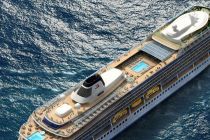
Viking OCEAN introduces 10 new cruise itineraries in 2026-2027
Viking OCEAN expanded its offerings with 10 new European itineraries - in the Mediterranean, the UK, Ireland, and the Baltic, now available for...
December 25, 2024 - Cruise Industry
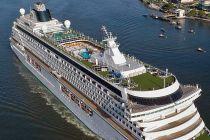
Crystal Cruises announced 2026-H2 itineraries across 5 continents
The ultra-premium travel brand Crystal Cruises unveiled its 2026 sailing schedule, with Crystal Serenity and Crystal Symphony set to explore diverse...
December 5, 2024 - Cruise Industry
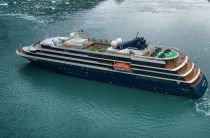
AOV-Atlas Ocean Voyages unveils 2026 Summer itineraries with 28 new ports
Atlas Ocean Voyages has revealed its 2026 summer itineraries, introducing a range of expeditions across the Canadian Arctic, Bermuda, the Caribbean...
November 24, 2024 - Cruise Industry
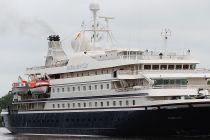
SeaDream Yacht Club expands presence in the British Isles with 2027 itineraries
SeaDream Yacht Club, renowned for its boutique yacht travel experiences, has announced an expanded presence in the British Isles for 2027. The new...
November 18, 2024 - Cruise Industry

AIDAluna ship marks opening of Oslo Port’s shore power system
On September 24th, AIDA Cruises and Port Oslo (Norway) marked a significant milestone with the inauguration of a new shore power facility, enabling...
September 27, 2024 - Cruise Industry
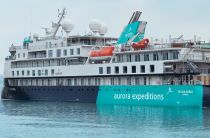
Aurora Expeditions opens 2026 itineraries with Solar Eclipse cruises and new solo cabins
Aurora Expeditions, renowned for its responsible small-ship exploration, has unveiled its 2026 Arctic and Beyond season, expanding its offerings to...
September 9, 2024 - Cruise Industry
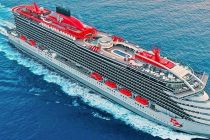
Virgin Voyages to launch Solar Eclipse-themed cruises in 2026
Virgin Voyages is charting a course for the cosmos with the introduction of its first-ever Eclipse Voyages, set to launch in 2026 as part of the...
August 13, 2024 - Cruise Industry
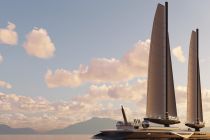
Chantiers de l’Atlantique/STX France taps TMC Compressors for world's largest sailships
The French shipbuilder Chantiers de l’Atlantique/STX France has selected TMC Compressors (TMC) to provide the marine compressed air systems for...
July 29, 2024 - Cruise Industry
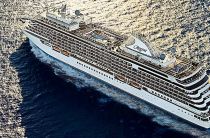
RSSC-Regent Seven Seas unveils free multi-day land programs for 2025 cruises
RSSC-Regent Seven Seas Cruises has introduced "Iconic Explorations," a program offering guests complimentary, multi-day land excursions in Europe and...
July 29, 2024 - show more news
